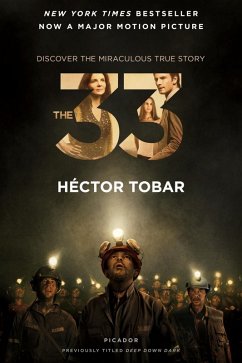
Impressions of Lucia Richard: Literature, Art and Society in the Chile of the Fifties (eBook, ePUB)

PAYBACK Punkte
0 °P sammeln!
A FUNDAMENTAL TEXT TO UNDERSTAND THE CHILEAN CULTURE, ITS ARTISTIC AND LITERARY MOVEMENTS AND ITS REACTION TO THE IRRUPTION OF PABLO NERUDA Through the pages of Impressions of Lucia Richard, we enter the literary and artistic lifework of the poet, writer, storyteller, essayist, columnist, lecturer, biographer, and radio speaker Lucia Richard. This is an engaging work, which addresses the creation and activities of the so-called Cenacle of Poetry of the Conservatory of Declamation, making a pleasant follow-up not only of Lucia Richard but of all her companions. In particular, it focuses on the ...
A FUNDAMENTAL TEXT TO UNDERSTAND THE CHILEAN CULTURE, ITS ARTISTIC AND LITERARY MOVEMENTS AND ITS REACTION TO THE IRRUPTION OF PABLO NERUDA
Through the pages of Impressions of Lucia Richard, we enter the literary and artistic lifework of the poet, writer, storyteller, essayist, columnist, lecturer, biographer, and radio speaker Lucia Richard. This is an engaging work, which addresses the creation and activities of the so-called Cenacle of Poetry of the Conservatory of Declamation, making a pleasant follow-up not only of Lucia Richard but of all her companions. In particular, it focuses on the study of a group of women in the forties and fifties, shedding light on events until now hardly evoked.
Among them, it is the founding of the House of America in Santiago and all the initiatives and projects of these people. It is an unprecedented work in its class that revives endearingly the personality of Vera Zouroff and her entire group. Through recitals and lectures, Latin American congresses, and publications, these women joined their voices to express their truth, pursuing an ideal that has endured to this day. The involvement and recognition of these groups by such outstanding people as Samuel Lillo, Gabriela Mistral, Miguel Rocuant, Ines Echeverria, Jorge Gustavo Silva, and many others, gives a seal of quality and transcendence to their committed work.
We are faced with the powerful emotional strength of a group that actively struggled to find its place in history, to restore the dignity of women, and ultimately, to create a brotherhood among the peoples of The Americas. Their aspiration for universality led them to try to build a transnational project that would survive the passage of time and spread a message as inspired as altruistic that gave meaning to their lives through the renewing of their cultural heritage in search of a fairer and free world.
They fought against the intransigence of Santiago's society. To achieve it, they confronted the same bourgeois society they belonged but were nevertheless trying to transform. On their journey, these women found light in the shadows. But on the horizon, there was always a glimpse of their diamond ideals: love, truth, and spirit worship. These were for them the only forces that made the mountains roar, freeing man from his maliciousness. In their endeavor, they envisioned a world in which they could raise the culture, the identity, the far-looking, of the essential human being. Thus they forged the greatness of their dreams, showing us how the most beautiful things in life can be within everyone's reach.
In short, it is a very interesting text to understand the Chilean literature, the Chilean poetry before Neruda, the activities of a cross-cutting group in which many men and women participated, the cultural and artistic movements of Chile, and a little-explored episode of the history of Chile.
Through the pages of Impressions of Lucia Richard, we enter the literary and artistic lifework of the poet, writer, storyteller, essayist, columnist, lecturer, biographer, and radio speaker Lucia Richard. This is an engaging work, which addresses the creation and activities of the so-called Cenacle of Poetry of the Conservatory of Declamation, making a pleasant follow-up not only of Lucia Richard but of all her companions. In particular, it focuses on the study of a group of women in the forties and fifties, shedding light on events until now hardly evoked.
Among them, it is the founding of the House of America in Santiago and all the initiatives and projects of these people. It is an unprecedented work in its class that revives endearingly the personality of Vera Zouroff and her entire group. Through recitals and lectures, Latin American congresses, and publications, these women joined their voices to express their truth, pursuing an ideal that has endured to this day. The involvement and recognition of these groups by such outstanding people as Samuel Lillo, Gabriela Mistral, Miguel Rocuant, Ines Echeverria, Jorge Gustavo Silva, and many others, gives a seal of quality and transcendence to their committed work.
We are faced with the powerful emotional strength of a group that actively struggled to find its place in history, to restore the dignity of women, and ultimately, to create a brotherhood among the peoples of The Americas. Their aspiration for universality led them to try to build a transnational project that would survive the passage of time and spread a message as inspired as altruistic that gave meaning to their lives through the renewing of their cultural heritage in search of a fairer and free world.
They fought against the intransigence of Santiago's society. To achieve it, they confronted the same bourgeois society they belonged but were nevertheless trying to transform. On their journey, these women found light in the shadows. But on the horizon, there was always a glimpse of their diamond ideals: love, truth, and spirit worship. These were for them the only forces that made the mountains roar, freeing man from his maliciousness. In their endeavor, they envisioned a world in which they could raise the culture, the identity, the far-looking, of the essential human being. Thus they forged the greatness of their dreams, showing us how the most beautiful things in life can be within everyone's reach.
In short, it is a very interesting text to understand the Chilean literature, the Chilean poetry before Neruda, the activities of a cross-cutting group in which many men and women participated, the cultural and artistic movements of Chile, and a little-explored episode of the history of Chile.
Dieser Download kann aus rechtlichen Gründen nur mit Rechnungsadresse in A, B, CY, CZ, D, DK, EW, E, FIN, F, GR, H, IRL, I, LT, L, LR, M, NL, PL, P, R, S, SLO, SK ausgeliefert werden.













